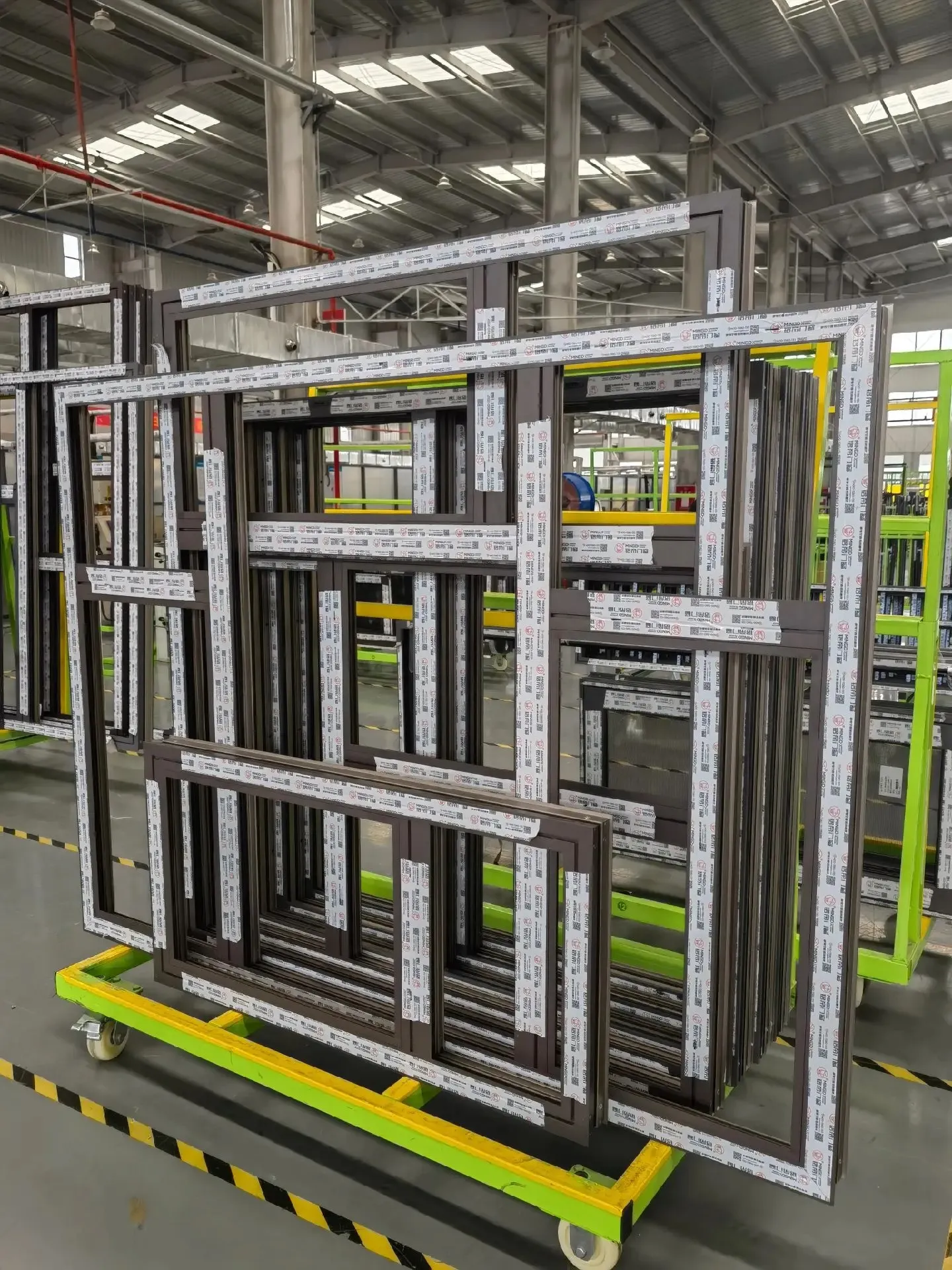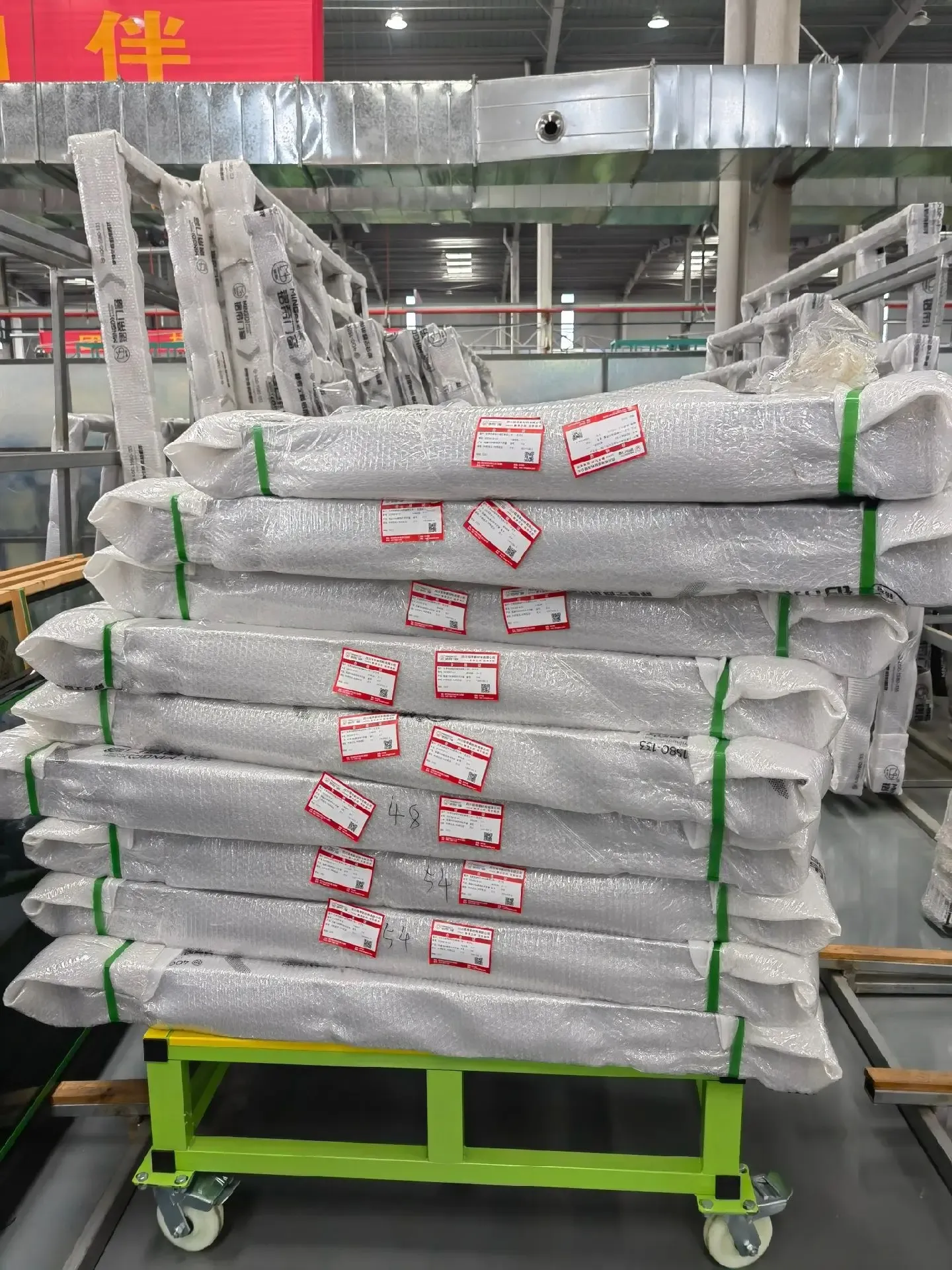- NEWS
- Are Aluminum Windows Better Than Vinyl?
Are Aluminum Windows Better Than Vinyl?
When it comes to choosing windows for your home, two popular materials often come to mind: aluminum and vinyl. Both options have their pros and cons, but understanding the differences can help you make the right decision for your needs. This article will explore the benefits and drawbacks of aluminum windows compared to vinyl windows, while also touching on related products like aluminum doors and profiles.
Durability and Strength
One of the most significant advantages of aluminum windows is their durability. Aluminum is a strong material that can withstand harsh weather conditions, making it an excellent choice for areas with extreme climates. Unlike vinyl, which can warp or crack over time due to heat exposure, aluminum windows maintain their shape and strength. This durability extends to aluminum doors as well, ensuring that both windows and doors in your home provide long-lasting service.

Energy Efficiency
When considering energy efficiency, vinyl windows often come out ahead. Vinyl frames typically have better insulation properties due to their multi-chambered design. However, advancements in aluminum technology have led to the development of thermally broken aluminum profiles. These profiles feature a plastic core that significantly improves their insulation capabilities, allowing them to compete with vinyl in energy performance. Therefore, if you choose high-quality aluminum windows with a thermally broken design, you can achieve good energy efficiency.
Maintenance Requirements
Aluminum windows require less maintenance compared to vinyl. Aluminum is resistant to fading, peeling, and chipping, which means it can maintain its appearance without the need for frequent painting or refinishing. On the other hand, vinyl windows, while they may initially appear low-maintenance, can become discolored and may require cleaning or replacement after several years due to UV exposure. Thus, if you prioritize convenience, aluminum windows may offer a significant advantage.
Aesthetic Appeal
Aesthetics play a crucial role in window selection. Aluminum windows have a sleek and modern appearance that many homeowners find appealing. They offer a variety of colors and finishes, allowing for greater customization to match your home's exterior. Furthermore, the slender frames often associated with aluminum profiles maximize glass area, which enhances views and natural light. In contrast, vinyl windows tend to have thicker frames, potentially obstructing views and appearing bulkier.
Cost Considerations
In terms of upfront costs, vinyl windows generally come out cheaper than aluminum windows. However, it’s essential to consider the long-term investment. While aluminum windows may involve a higher initial expense, their durability can mean lower replacement costs in the future. Additionally, the reduced maintenance needs can lead to savings over time. Thus, if you plan to stay in your home for many years, investing in aluminum windows might be more economical in the long run.
Noise Reduction
Another factor to consider is noise reduction. Aluminum windows, particularly those with double or triple glazing, can effectively reduce external noise. The density of the material, coupled with modern sealing technology, helps in minimizing sound penetration. While vinyl windows also provide decent noise insulation, aluminum often outperforms them in this area. This makes aluminum windows a suitable choice for homeowners living in busy urban settings or near high-traffic areas.

Environmental Impact
When it comes to environmental considerations, both materials have their merits. Aluminum is infinitely recyclable, which means it can be repurposed repeatedly without losing quality. When choosing aluminum windows or doors, you can contribute to sustainability efforts. Vinyl, while also recyclable, often has a more complicated recycling process, and the production of PVC (polyvinyl chloride) can release harmful chemicals. Therefore, an aluminum door or window may be the more environmentally friendly choice.
Conclusion
Ultimately, the decision between aluminum windows and vinyl windows depends on your specific needs and preferences. Aluminum windows offer superior durability, aesthetics, and low maintenance, while vinyl windows tend to be more cost-effective upfront and provide better insulation. If you choose to go with aluminum, you’ll benefit from options like beautifully designed aluminum profiles, a range of finishes, and energy-efficient designs.
When making your choice, consider factors such as climate, budget, and maintenance preferences. Whether you opt for aluminum windows or their vinyl counterparts, ensure they suit your home’s design and functional requirements. In the long run, both materials have the potential to enhance your living space, but understanding their pros and cons will help steer you toward the best decision for your home.
If you are interested in our products, please contact us for a free quotation
-
How to Decorate a Pergola and Picnic Table?NewsMar.27,2025
-
How Long to Build a Glass Enclosure Sunroom?NewsMar.25,2025
-
Maximize Your Outdoor: Modern Pergola IdeasNewsMar.18,2025
-
Bright Bites: A Sunroom Dining Area EscapeNewsMar.13,2025
-
Is Aluminum a Metal or Metalloid?NewsMar.11,2025
-
How Tall Should a Pergola Be?NewsMar.06,2025
-
Bright and Inviting: The Perfect Sunroom with WindowsNewsMar.04,2025











